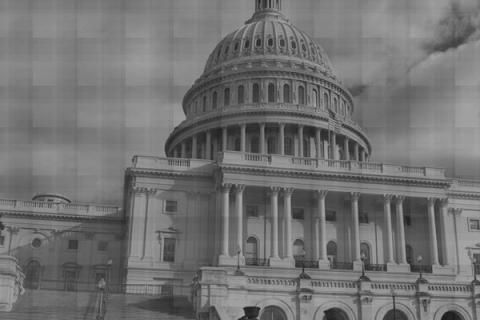Recent public opinion surveys reveal a noteworthy paradox that results from Democratic-Republican party dominance over our political system. According to these polls, though the public favors Democrats, they are prepared to vote Republican this November. How can we explain this apparent contradiction? Arguably, it is a result of the ideological and political deadlock characteristic of the reigning two-party system.
One of the means by which the Democratic and Republican parties maintain their dominance despite their unpopularity is by obtaining the support of those who simply oppose the other party. A Wall Street Journal/NBC News poll from August found that only 33% and 24% of respondents, respectively, had a positive view of the Democratic and Republican parties, while 44% and 46% had a negative view of them, respectively. Yet, on the so-called generic ballot, the parties were neck and neck: 42% desired a Republican-controlled Congress while 43% opted for a Democrat-controlled Congress.
Interestingly, the poll also inquired as to the respondents’ motivations, asking the latter group whether they preferred a Democrat-controlled Congress because they support Democrats or because they oppose Republicans, and asking the former group whether they preferred a Republican-controlled Congress because they support Republicans, or because they oppose Democrats. Of those who desired a Democrat-controlled Congress, only 48% stated that they support Democrats, while 47% admitted that they simply oppose Republicans. The breakdown was quite different among those who favored a Republican-controlled Congress. Only 35% said they supported Republicans, while a whopping 57% stated that they simply oppose the Democrats! This is the logic of lesser evilism in the aggregate. Taking these numbers at face value, it is safe to assume that the majority of American voters do not cast their ballots for candidates whom they support or favor, but rather against candidates whom they dislike and disfavor. It is thus no surprise that so many Americans do not feel they are adequately represented by their elected officials. The majority do not vote for candidates whom they favor! How could they if they dislike both the Republicans and the Democrats? That the majority of eligible voters do not vote in the majority of elections is a striking symptom of this sad state of affairs.
A more recent poll conducted by Washington Post and ABC News starkly reveals the contradiction under consideration here. Asked which party they “trust to do a better job in coping with the main problems the nation faces over the next few years,” the plurality of respondents favored the Democrats (40%), who held a slight lead over their Republican counterparts (37%). Significantly, 18% of those polled stated that they did not trust the Democrats or the Republicans to cope with the main problems facing the nation. Similarly, more people stated that the Democrats better represent their own personal values than the Republicans (45% to 42%), and more people stated that Democrats were more concerned with the needs of people like themselves than Republicans (48% to 39%). Significantly, 10% and 11%, respectively, stated that neither the Democrats nor the Republicans represent their own personal values and that neither were concerned with the needs of people like themselves. Given these responses, it is fairly surprising to find that a greater portion of both likely and registered voters among those polled were prepared to vote Republican. Among registered voters, Republicans led Democrats 47% to 45%, while likely voters preferred Republicans to Democrats 53% to 40%.
As in the WSJ/NBC poll, a follow-up question sheds some more light on this paradox. The survey asked respondents whether they think “it is more important to have the Democrats in charge of Congress, to help support Obama's policies, or to have the Republicans in charge of Congress, to act as a check on Obama's policies.” 55% stated that it was more important to have Republicans check Obama’s policies, while only 39% said it was more important to have Democratic Congress in support of the President’s policies. The majority favor divided government.
This is a relatively new development. In the first half of the twentieth century, undivided government was the norm, which was slowly supplanted by an apparent preference for divided government as the twentieth century drew to a close. Between 1901 and 1951, there were four two-year periods of divided government. Between 1951 and 2003 there were sixteen! Americans may currently prefer or favor Democrats over Republicans, but they also prefer divided government over a single party’s dominance in both the executive branch and the legislature.
Under the conditions of Democratic-Republican party government, the majority of Americans do not vote for candidates they support, but rather against candidates they more strongly oppose. Furthermore, Democratic-Republican party government has so corroded the constitutional form of our government that the separation of powers, of itself, is no longer seen as sufficient to ensure checks and balances.
It is no wonder that Independents now outnumber both Democrats and Republicans.

